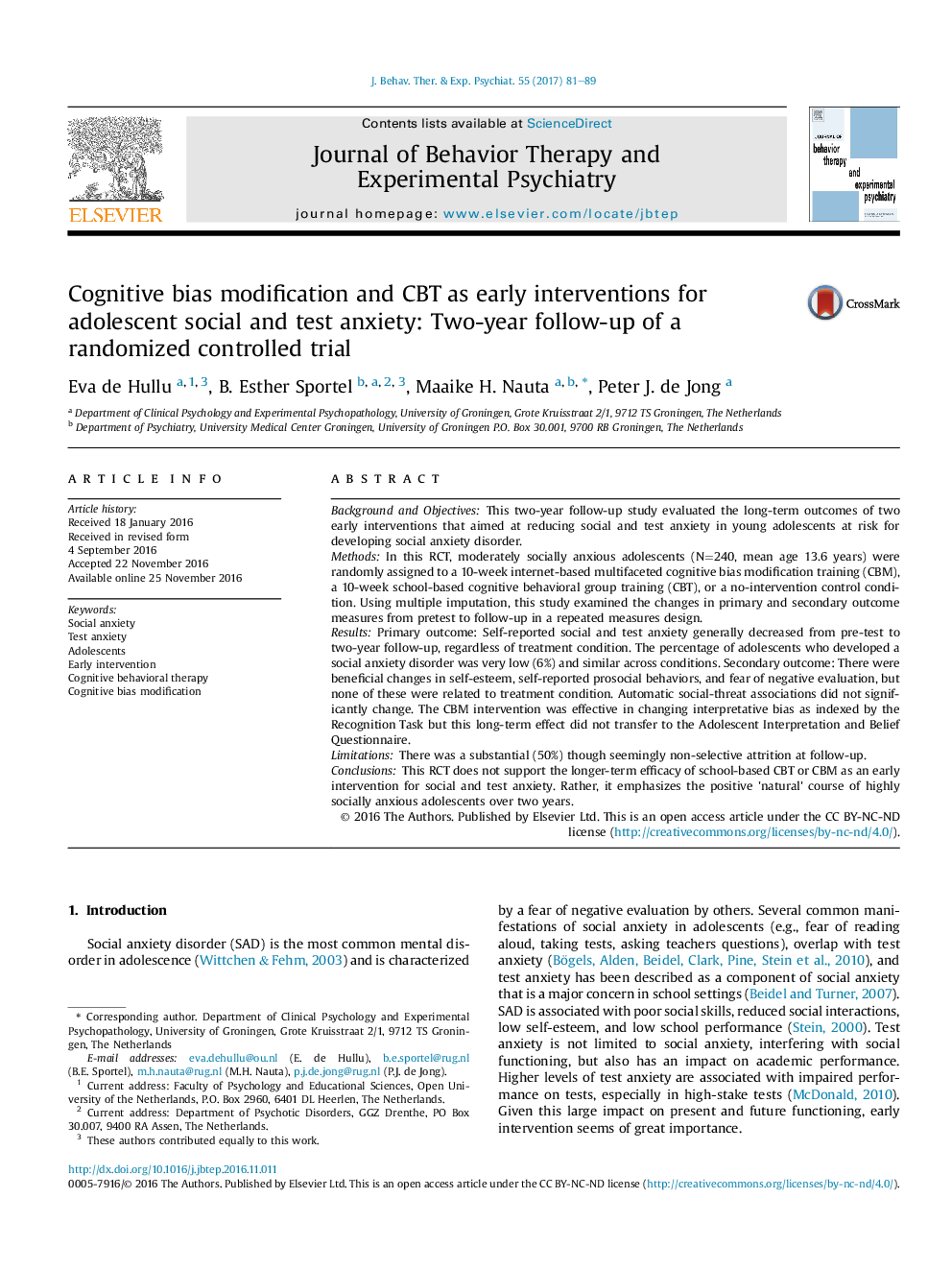| Article ID | Journal | Published Year | Pages | File Type |
|---|---|---|---|---|
| 5039056 | Journal of Behavior Therapy and Experimental Psychiatry | 2017 | 9 Pages |
â¢Two-year follow-up of RCT on CBT and CBM in high socially anxious adolescents.â¢No differential effects on primary and secondary outcome measures.â¢Results showed a positive natural course of symptoms regardless of interventions.
Background and ObjectivesThis two-year follow-up study evaluated the long-term outcomes of two early interventions that aimed at reducing social and test anxiety in young adolescents at risk for developing social anxiety disorder.MethodsIn this RCT, moderately socially anxious adolescents (N=240, mean age 13.6 years) were randomly assigned to a 10-week internet-based multifaceted cognitive bias modification training (CBM), a 10-week school-based cognitive behavioral group training (CBT), or a no-intervention control condition. Using multiple imputation, this study examined the changes in primary and secondary outcome measures from pretest to follow-up in a repeated measures design.ResultsPrimary outcome: Self-reported social and test anxiety generally decreased from pre-test to two-year follow-up, regardless of treatment condition. The percentage of adolescents who developed a social anxiety disorder was very low (6%) and similar across conditions. Secondary outcome: There were beneficial changes in self-esteem, self-reported prosocial behaviors, and fear of negative evaluation, but none of these were related to treatment condition. Automatic social-threat associations did not significantly change. The CBM intervention was effective in changing interpretative bias as indexed by the Recognition Task but this long-term effect did not transfer to the Adolescent Interpretation and Belief Questionnaire.LimitationsThere was a substantial (50%) though seemingly non-selective attrition at follow-up.ConclusionsThis RCT does not support the longer-term efficacy of school-based CBT or CBM as an early intervention for social and test anxiety. Rather, it emphasizes the positive 'natural' course of highly socially anxious adolescents over two years.
